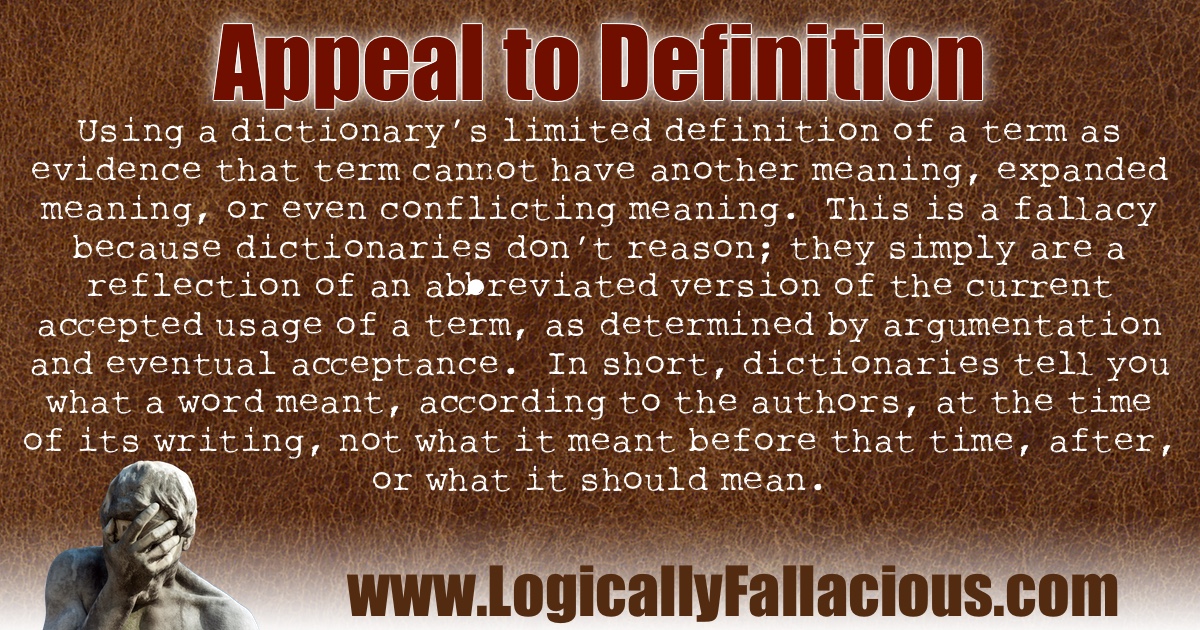(also known as: appeal to the dictionary, victory by definition)
Description: Using a dictionary’s limited definition of a term as evidence that term cannot have another meaning, expanded meaning, or even conflicting meaning. This is a fallacy because dictionaries don’t reason; they simply are a reflection of an abbreviated version of the current accepted usage of a term, as determined by argumentation and eventual acceptance. In short, dictionaries tell you what a word meant, according to the authors, at the time of its writing, not what it meant before that time, after, or what it should mean.
Dictionary meanings are usually concise, and lack the depth found in an encyclopedia; therefore, terms found in dictionaries are often incomplete when it comes to helping people to gain a full understanding of the term.
Logical Form:
The dictionary definition of X does not mention Y.
Therefore, Y must not be part of X.
Example #1:
Ken: Do you think gay marriage should be legalized?
Paul: Absolutely not! Marriage is defined as the union between a man and a woman—not between two men or two women!
Ken: Did you know that in 1828 the dictionary definition of marriage included, “for securing the maintenance and education of children”? Does that mean that all married couples who can’t or choose not to have children aren’t really married?
Paul: No, it just means they need to buy updated dictionaries.
Ken: As do you. The current Merriam-Webster Dictionary includes as a secondary definition, “the state of being united to a person of the same sex in a relationship like that of a traditional marriage.”
Explanation: The dictionary does not settle controversial issues such as gay marriage—it simply reports the most current accepted definition of the term itself while usually attempting to remain neutral on such controversial issues.
Example #2:
Armondo: Mrs. Patterson was wrong to knock off 10 points off my oral presentation because I kept using the word, “erection” instead of building.
Felix: That was hilarious, but did you honestly think you would not get in trouble?
Armondo: No, my dictionary says that an erection is a building.
Explanation: Armondo may be right, but the dictionary is not the final authority on all issues, especially social behavior. More modern usage, especially in a high school setting, takes precedence in this case.
Exception: The dictionary works well when the term in question is a result of a misunderstanding or ignorance. For example:
Ken: Do you accept evolution?
Paul: No. Because life cannot come from non-life.
Ken: Look up “evolution” and you will see that it makes no claims to the origin of life.
Tip: Don’t be afraid to argue with authority if you believe you are right -- even when that authority is the dictionary.

References:
This is an original logical fallacy named by the author, but the victory by definition form has the following source:
Govier, T. (2009). A Practical Study of Argument. Cengage Learning.